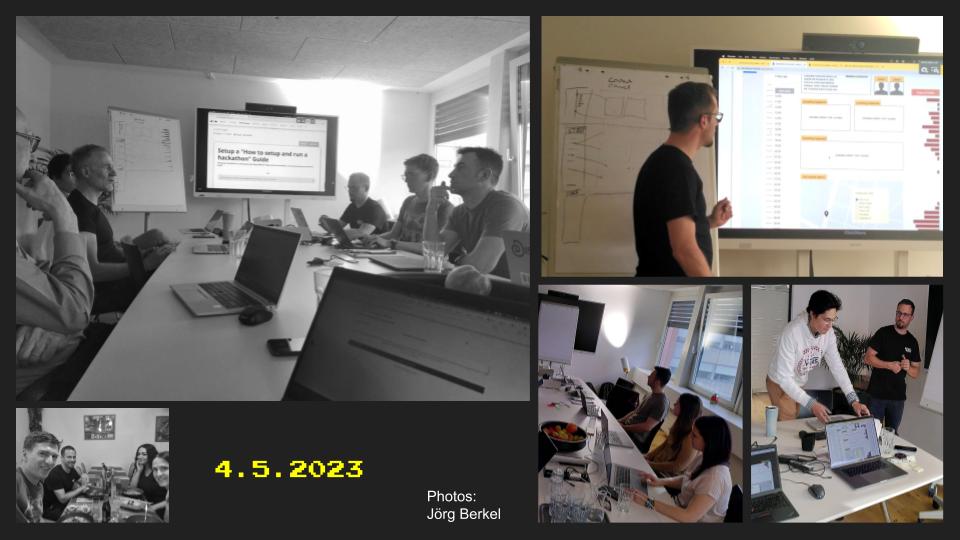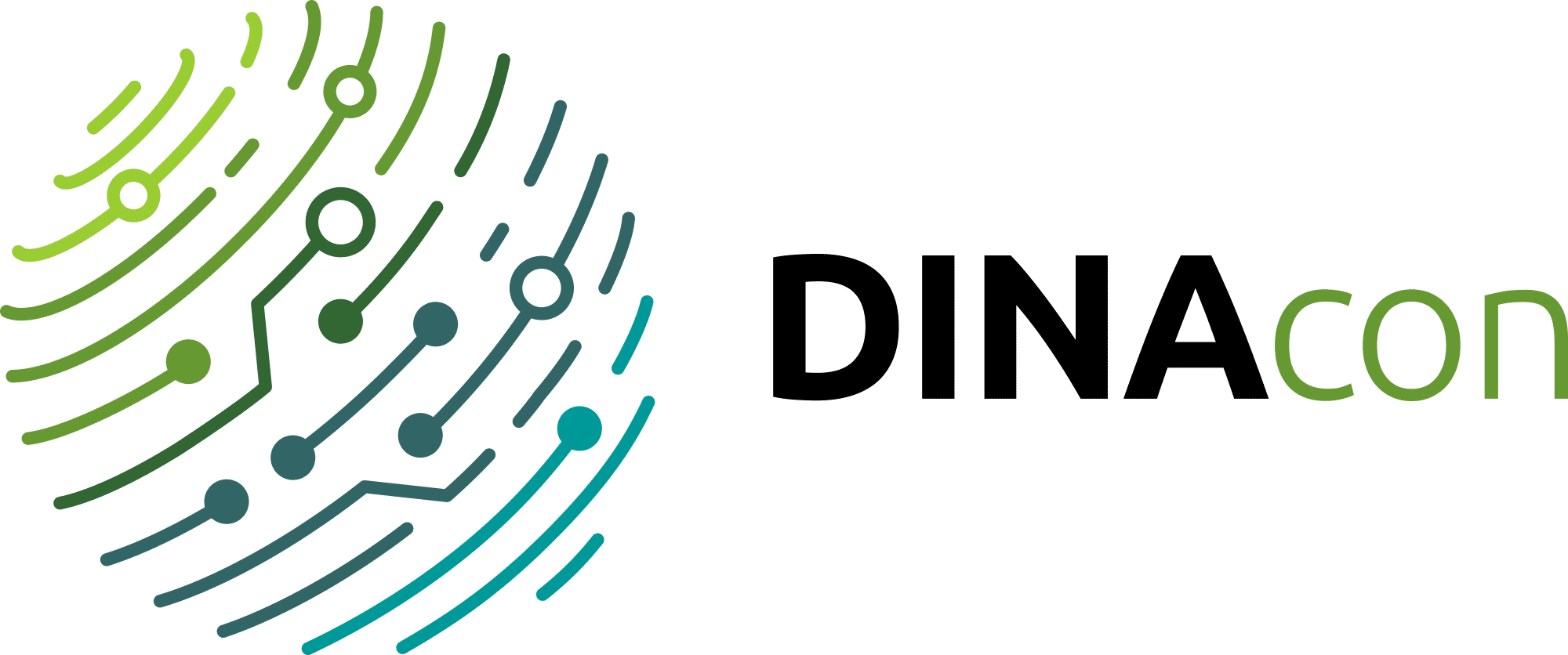Report
💡 Active projects and challenges as of 23.10.2025 08:07.
Hide text CSV Data Package Print
Cactus
As presented in the DINAcon 2023 talk by Stefan Barac and Markus Stolze
Key Learnings
- all people are disabled: Explanation using the example of age groups
- 99.9 % of today's products and services overload target groups
- this is cognitive load and what it means for sales and people centring
- how to combine physical and digital experiences to create inclusive experiences
- a11y tests the best way to stay solvent while learning if you offer inclusion
- two examples of systems that support the implementation of web accessibility
See also Bachelor Thesis by Mathias Lenz (autotranslated to English here)
Welcome to Project Cactus!
"Is my favourite UI library accessible?" - "What UI Frameworks could I choose for my project that gives me a headstart in accessibility?" These are the questions project cactus tries to answer!
Hack:Org:X
Hackathon Organizers Exchange: a community resource to accelerate openness in hackathons
We invite our peers and colleagues, really everyone who is interested in the art & science of Hackathons, Hackdays, Hacknights, and other time-limited / open / collaborative / experimental / hands-on workshops, to join us for a convivial discussion of the past and future of the field.
At Hack:Org:X meetings, we share best practices, followed by group discussion on critical questions and research directions. Our initial meetings have focused on topics like:
- where and how to deploy open tools and infrastructure for better hackathons;
- how to plan interventions that respond to social needs and crisis topics;
- who are the stakeholders, where is the momentum building;
- insights and retrospectives from hackathon crews around Switzerland
On May 4, our meeting in Basel was supported by the ⬢DRIBDAT collective, BaselHack and Baseltech.swiss. We explored ten challenges for hackathon organizers, documenting our thoughts in the comments: from making events more fair & accessible to having a better handbook and issuing certificates. We even started a new cooperative. See also: the recap / the results
This was closely followed by virtual exchanges, and a second in-person meeting on August 17 in Zürich, hosted by MakeZurich and ewz. Here we worked together on a Stakeholder Analysis, and heard from several researchers who are collecting data and making critical inquiries into the topic of hackathons. See also: the recap / the results
Many of our discussions involve topics that were prominent at DINAcon in the past. We look forward to follow-up with further Hackathon Organizers workshops, and a hands-on session at the DINAcon HACKnights! For more information, visit https://hackorgx.dribdat.cc/



Open Assistant
A chat-based assistant that understands tasks, can interact with third-party systems, and retrieve information dynamically
Yannic Kilcher presented Open Assistant at the DINAcon 2023, sharing "A brief insight into the open source world in the field of artificial intelligence and where the data for it comes from."
See also:
Recommended intro resources from the LAION team:
- Contrastive https://lilianweng.github.io/posts/2021-05-31-contrastive/
- Embeddings https://rom1504.medium.com/semantic-search-at-billions-scale-95f21695689a
- Diffusion https://lilianweng.github.io/posts/2021-07-11-diffusion-models/
Open Assistant is now concluded as a project, so we can no longer use the interactive online chatbot. However, the source code and the model remains accessible through GitHub. We used HuggingChat (LLaMA 2) to generate some HACKnight challenges based on the Open Assistant's README.
{ hacknight challenges }
Create a simple chatbot that responds to basic user queries using pre-defined answers. The chatbot should be able to understand basic natural language inputs and respond accordingly.
Implement a rating system for the chatbot's responses. Users should be able to rate the helpfulness of the chatbot's responses, and the ratings should be used to improve the chatbot's performance over time.
Implement a reinforcement learning algorithm to train the chatbot to generate better responses over time. The algorithm should use the ratings from the intermediate challenge as feedback to improve the chatbot's performance. Additionally, implement a mechanism to allow users to provide additional feedback, such as suggestions for alternative responses, to further improve the chatbot's performance.
NOTE: OpenAssistant is completed, and the project is now finished. Thank you to everyone who contributed! Check out our blog post for more information.
The Things Network Bern
An Idea that is greater than the sum of its Parts
The Things Network (TTN) consists of an inclusive and open global community of people, companies, governments and universities who are learning, experimenting and building with LoRaWAN (low power, long-range), typically sensor-based data collection projects. We are supporting a scattered yet active community of open hardware tinkerers in Switzerland through events and Starter Kits. Support TTN and related open protocols by joining the Open Network Infrastructure Association! You can help us to improve bootstraps and badges for next year, and run the next edition of MakeZurich, TTN Bern, TTN Basel, and other activities in 2023.
🛠️ Join our workshop at Glue Software on December 4
💸 Donate at opennetworkinfrastructure.org
🔵 Follow at Open Collective

{ hacknight challenges }
Learn a bit of background about the concept of an open network, the technical and legal issues, and how to get connected. Explore the maps of community gateways as well as TTN Mapper, see how well the coverage is in your part of town. Leave a comment with your observations.
Look for introductory materials from MakeZurich, Instructables, Hack-a-day, to find interesting projects. These will typically have parts lists so you can order the components online. Swiss shops like Bastelgarage, Pi-Shop, Digitec, etc., have most of what you need to get started.
Build something awesome and share the story! Next year we want to open up our platform to include all the DIY tinkering happening in garages across the country. Join the community and reach out through Slack if you have any questions.
See also:
https://hacknight.dinacon.ch/project/7
The Things Network Manifesto
Everything that carries power will be connected to Internet eventually.
Controlling the network that makes this possible means controlling the world. We believe that this power should not be restricted to afew people, companies or nations. Instead this should be distributedover as many people as possible without the possibility to be takenaway by anyone. We therefore founded "The Things Network".
The Things Network is an open source, free initiative with the following properties:
- It connects sensors and actuators, called "Things", with transceivers called "Things Gateways" to servers called "Things Access".
- The first connection is "Over The Air", the second is "Over The Net". The distributed implementation of these concepts is called "The Things Network".
- Anyone shall be free to set up "Things" and connect to "Things Gateways" that may or may not be their own.
- Anyone shall be free to set up "Things Gateways" and connect to "Things Access" that may or may not be their own. Their "Things Gateways" will give access to all "Things" in a net neutral manner, limited by the maximum available capacity alone.
- Anyone shall be free to set up "Things Access" and allow anonymous connections from the Internet. Their "Things Access" will give access to all "Things Gateways" in a net neutral manner, limited by the maximum available capacity alone. Furthermore their "Things Access" will allow connection of other "Things Access" servers for the distribution of data.
- The "Over The Air" and "Over The Net" networks shall be protocol agnostic, as long as these protocols are not proprietary, open source and free of rights.
- Anyone who perpetrates a "Things Access" or a "Things Gateway" will do so free of charge for all connecting devices and servers.
- Anyone making use of the network is allowed to do so for any reason or cause, possibly limited by local law, fully at own risk and realizing that services are provided "as is" and may be terminated for any reason at any moment. The use may be open for anybody, limited to customers, commercial, not-for-profit, or in any other fashion. "The Things Network" providers will not pose restrictions upon its users.
We invite you to sign this Manifesto, and uphold its principles to the bestof your abilities.
